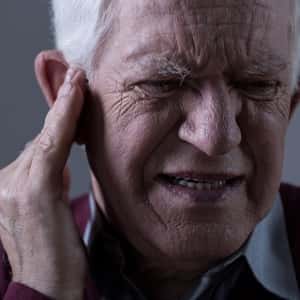
Tinnitus, often referred to as “ringing in the ears,” can be extremely intrusive. Many people tell us it has a serious impact on their quality of life.
That is why it makes sense to pay attention when tinnitus begins. Sometimes it is caused by an adverse reaction to medications. In such cases, discontinuing the drug may solve the problem. Of course, no one should stop a prescription drug except under medical supervision.
Sometimes tinnitus cannot be traced to any particular source. Finding a way to diminish it can be a challenge, but this reader has an intriguing suggestion.
Q. I wanted to share my experience with tinnitus. It’s not incapacitating, but it is annoying. I found something that helps by serendipity.
My wife has hair loss. She takes levothyroxine (Synthroid) and liothyronine (Cytomel) because her thyroid was removed via radiation. She also takes biotin to lessen her hair loss.
I’m bald on top, but I thought I’d see if biotin would help grow new hair. It didn’t.
Does Biotin Relieve Tinnitus?
What DID happen with the very first dose was total elimination of my tinnitus! A few hours after I take the biotin, the tinnitus returns, but at a much lower intensity.
A. Tinnitus is the perception of noise that no one else can hear: buzzing, whining, chirping or clicking noises. It becomes more common with age, as the nerves in the ear deteriorate, or it may be associated with noise-induced hearing loss.
Some people take biotin to improve nail strength. We were unable to find research linking biotin to tinnitus management, so you may have stumbled on something.
This water-soluble B vitamin is considered reasonably safe. We find it intriguing to consider the possibility that biotin might relieve tinnitus.

